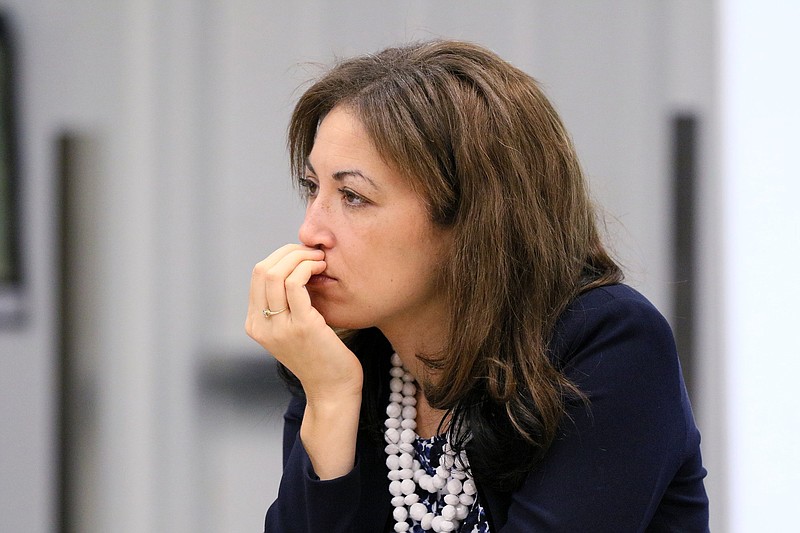Tennessee Education Commissioner Penny Schwinn says her department will continue its remote learning waiver program, which allows some classrooms or schools to switch to virtual learning to fight the spread of COVID-19 - but not entire school districts.
The approach has been criticized by those who think it has created confusion and endangered students, teachers and staffers across the state.
Last week, 40 members of the Tennessee Alliance for Equity in Education wrote a letter to Schwinn seeking clarity on the program.
They take issue with a policy that forces school districts to use inclement weather days - snow days - to shut down entirely to stop the spread of the virus, rather than use virtual learning. Hamilton County closed for two such days last week.
"We believe students are best served by in-person learning. However, this pandemic is surging to new heights, with the Tennessee Department of Health reporting that children represent nearly 40% of all positive cases in our state, and Tennessee has recently led the nation in pediatric COVID cases per 100,000," the letter said.
"Far too many students and teachers across the state are missing school this fall, with more than 25 districts having closed due to the rising case numbers. Given the current state-mandated limits on virtual learning, when entire school districts close without additional options for learning, they are forced to halt instruction entirely for all students, including the most vulnerable."
Members that signed the letter include statewide organizations and local organizations such as La Paz Chattanooga, UnifiEd and the Urban League of Greater Chattanooga.
Schwinn told the Times Free Press the department will continue the waiver approach for schools and classrooms, as opposed to allowing waivers for entire districts, to keep students learning in person as much as possible.
"I think having that level of flexibility from a scalpel approach as opposed to broad brushstrokes is going to continue to be what we are focused on," she said. "It does mean that we are not able to do entire districts at once because there are a lot of kids who can be in school, there are a lot of parents who want to send their kids to school, and I think on topics like these, it's really important that we think about it in a really small grain size and provide students with the best possible options every single day."
The waiver process, launched at the end of August, allows districts to apply for waivers for schools and classrooms affected by COVID-19 spread, such as student absences and staff shortages.
Several districts in Southeast Tennessee have closed this semester due to COVID-19 exposure and spread, including Hamilton County Schools closing Tuesday and Wednesday last week to slow the spread of COVID-19 after the long Labor Day weekend.
Districts have to use stockpile or inclement weather days for district-wide closures and cannot hold virtual instruction, leading to questions about the effects of closures on the length of the school year and the use of personal leave for school employees outlined by signees of the letter.
Some of the areas where members asked for clarity in the letter include:
- For districts that have already closed without a waiver, providing clarity on the 180-day instructional threshold given the impact on school closures and stockpile days
- District flexibility on the use or waiver of sick and personal leave requirements for COVID-19 related staff absences, including quarantine
The letter also asks Schwinn to adhere to guidance from the American Academy of Pediatrics that recommends wearing masks inside schools and encourages vaccination for individuals 12 and older.
Gov. Bill Lee has issued an executive order overriding local school districts that have attempted to impose universal masking requirements. Lee's order mandates a parental opt-out from any such requirements.
Contact Anika Chaturvedi at achaturvedi@timesfreepress.com or 423-757-6592.

